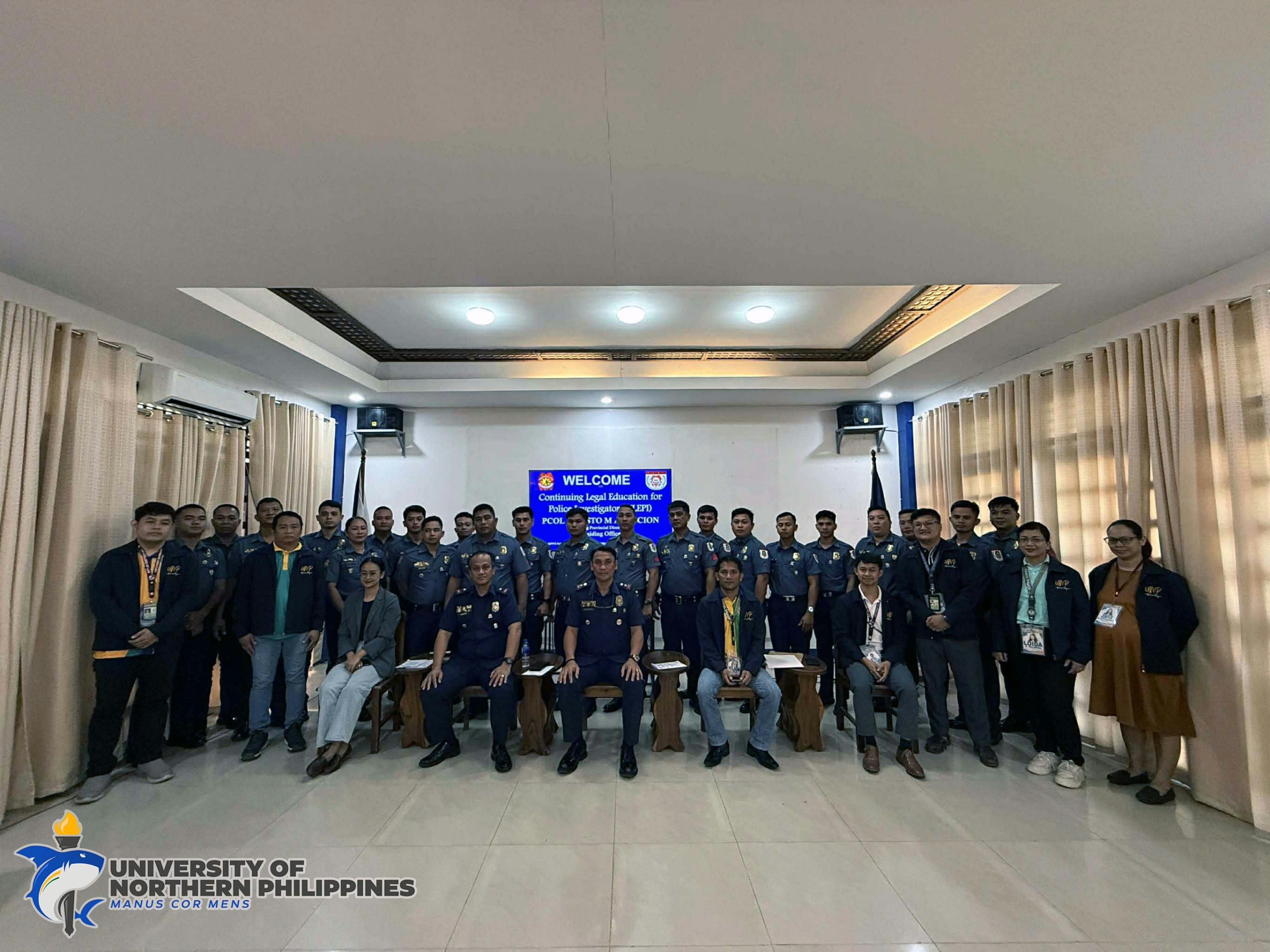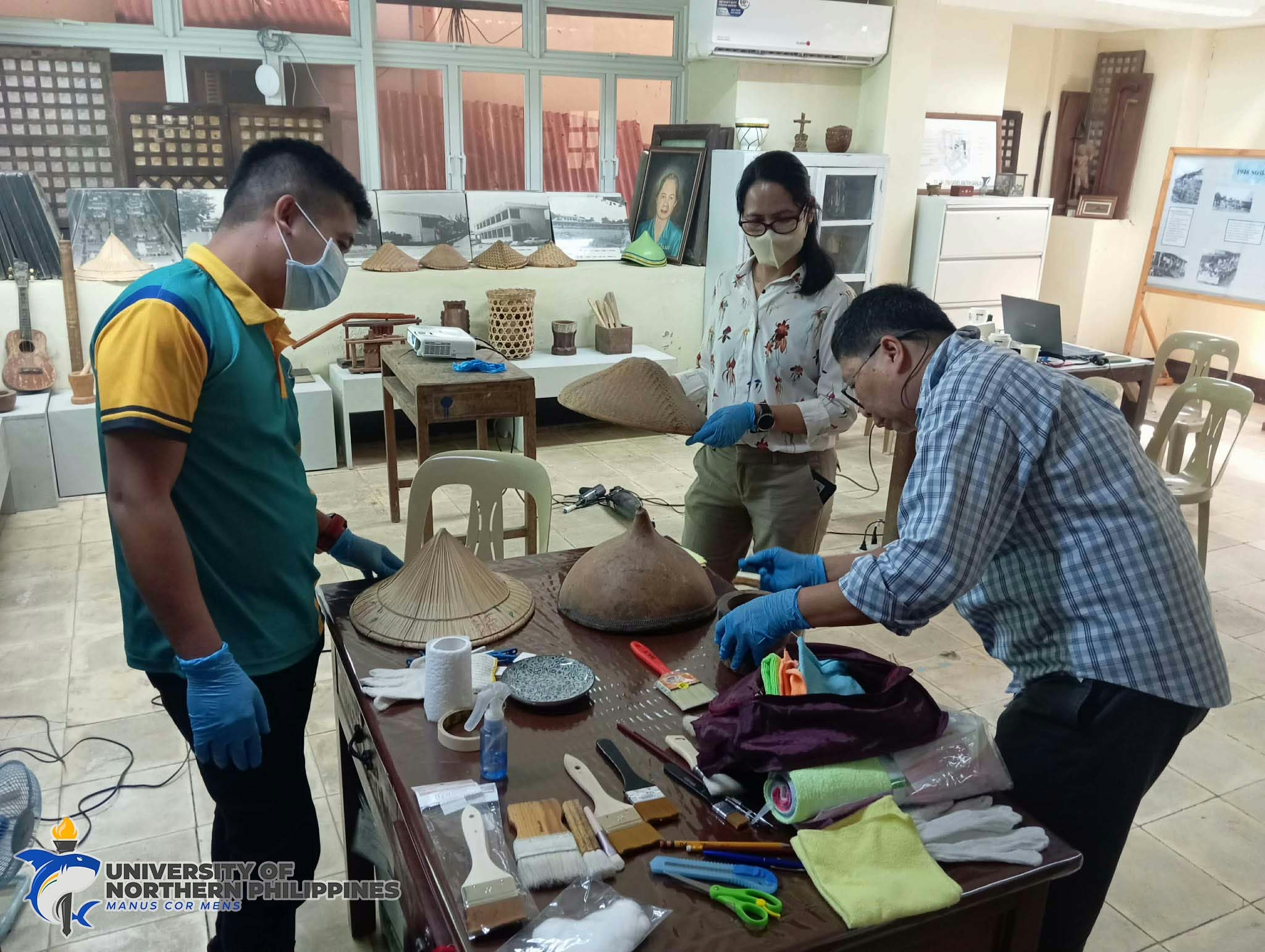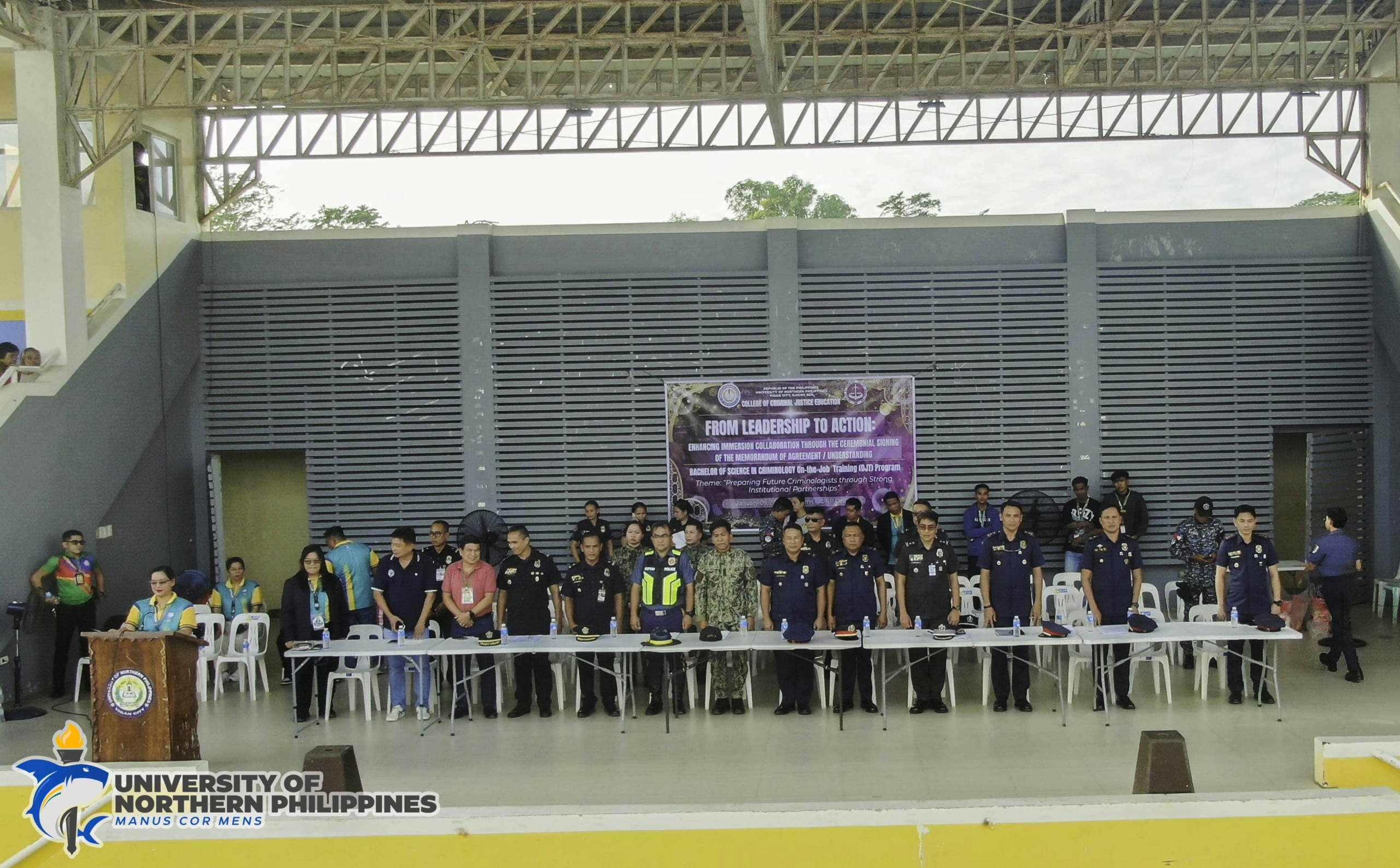In a bid to enhance the professional skills and legal competencies of law enforcers, the College of Open and Distance Education (CODE) and College of Law (CLaw) jointly held an extension program, “Bridging Law and Practice: Continuing Legal Education for Police Investigators,” on November 14, 2025, at Patnubay Hall, ISSPO Headquarters. The initiative aimed to strengthen investigative expertise and promote best practices in police law enforcement.
The CODE, led by its dean, Dr. Dolores Bersamina, in partnership with a team of lawyers from the Claw, spearheaded the conduct of the Continuing Legal Education for Police Investigators (CLEPI). The initiative sought to strengthen the legal knowledge and investigative capabilities of police officers by equipping them with updated insights on criminal procedures, evidence handling, and relevant jurisprudence essential to their duties as frontliners of the justice system.
During the session, the Claw faculty and staff provided in-depth discussions on key legal remedies essential to the practice of law enforcement. Atty. Mirela Verzosa expounded on the Writ of Amparo, emphasizing its role in protecting individuals whose right to life, liberty, and security is threatened or violated. Atty. Ignatius Tablada followed with a detailed explanation of the Writ of Habeas Corpus, a safeguard against unlawful detention. The discourse on environmental rights was led by Atty. Zsarmaine Lee Prades, who presented the Writ of Kalikasan as a legal remedy for environmental protection. Atty. Aaron Noel Taloza also tackled the Writ of Habeas Data, focusing on its function in securing an individual’s right to privacy against unlawful data collection. To reinforce these concepts, Atty. Aryan Cesar Manglapus discussed relevant jurisprudence, citing landmark cases that illustrate the application of these writs in real-world scenarios.
In a parallel initiative, a research study titled “Lifeworld of Registered Criminologists in PNP Enlistment”, led by Dr. Wilson Tolio, Assistant Dean of CODE, alongside Dr. Loida Rilveria and Ms. Jenifer Benzon of the CCJE faculty, was presented to bridge research and practice. The study sheds light on the lived experiences, motivations, and challenges faced by criminologists serving in the Philippine National Police. Its findings are poised to inform policy development, refine recruitment strategies, and enhance human resource practices within law enforcement agencies.
The activity was facilitated by a team, including Mr. Jay Ar Joshua Tolentino, CODE Extension Coordinator; Dr. Edwin Cerna, College of Criminal Justice Education Extension Coordinator; Dr. Epifania Marlene Purisima, CODE Research Coordinator; and Mr. Trinidad Rojo, CCJE Research Coordinator. Documentation of the event was meticulously handled by Dr. Tolio.
Article by Jay Ar Joshua A. Tolentino




